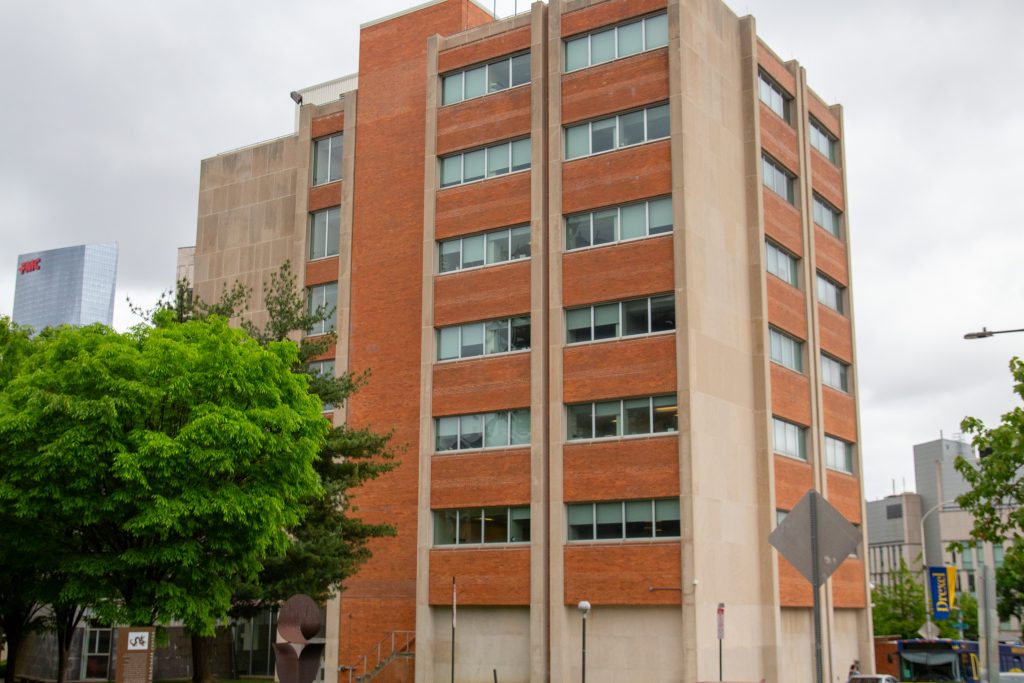
Dr. Gina Lovasi, the newly appointed Dean of Drexel University’s Dornsife School of Public Health, brings a compelling vision for the future of public health education and research at Drexel. Having served as Interim Dean since last September, she led the school through a period of transition, with a particular focus on communications and community-building, as highlighted by President John Fry. In a recent interview, she shared insights into her journey in public health, her academic experiences and what she hopes to build upon at Drexel.
Dr. Lovasi’s interest in public health stemmed from her undergraduate years at the University of California Los Angeles, where an epidemiology class sparked her curiosity. This led her to pursue graduate studies at the University of Washington, where she obtained her Master’s in Public Health and a Ph.D.
“I had been interested in math and science,” she explained. She wanted to find a meaningful application for these skills, and public health offered “tools to prevent disease and to help whole populations be healthier.”
Her time at the University of Washington also marked the beginning of her interdisciplinary approach to public health. She collaborated with experts in urban planning and medical geography, exploring how the environment affects physical activity and cardiovascular health. This led her to investigate the impact of neighborhood design on a range of health outcomes. “I’ve looked at things like trees and local stores like supermarkets, whether those have been fairly distributed, whether those have a positive effect on health. And then I’ve also brought that into my teaching,” she noted.
One of Dr. Lovasi’s current projects involves analyzing longitudinal data on retail environments and their impact on aging. She and her team have compiled data on 58 million retail establishments across the U.S. to study how changes in access to healthy foods, physical activity opportunities and medical facilities affect healthy aging. They are also exploring residents’ perceptions of these changes and their concerns about issues such as gentrification.
“We wanted to understand not just those things that we could measure in how the environment is changing, but also what people are reacting to and how they’re feeling about those changes,” she said. “Our goal is to make change that benefits the lost-term residents and avoid the problems that get raised in research on gentrification.”
As the Dean of Drexel’s School of Public Health, Dr. Lovasi is excited about the future and the opportunities to enhance public health education and research. Her primary goals are to increase student involvement in research and to improve science communication. With the school’s research output having increased, she sees a chance to engage students in telling the story of their work through various formats, including podcasts, short videos and infographics. She believes it is essential for everyone to be able to understand “what affects our lives, our ability to thrive, and our ability to keep hardship and disease from blocking human potential.”
“To me, that’s a reason we’re all in this together: to understand decisions that we should make with health consequences in mind,” Dr. Lovasi emphasized. She hopes to ensure that the research being done reaches the communities it aims to help.
For students interested in public health, especially undergraduates eager to get involved in research, Dr. Lovasi offered several pieces of advice. She encourages taking advantage of opportunities to connect with faculty through courses, student organizations and events. She also recommended using platforms like Forager One to find research projects that match their interests.
“Public health is a field that impacts everyone,” she stated. “It’s important for students to understand the broader context of their work and to see how systematic, collaborative approaches can make a difference.”
In closing, Dr. Lovasi expressed her enthusiasm for student engagement and innovation in public health education. She invited students to share their ideas and to get involved in shaping the future of the School of Public Health at Drexel.
“Our school is not only a place for students to learn, but we’re trying to learn as well,” she said. “I’m eager as the Dean to hear ideas for how we can serve our students better and have more opportunities for student engagement. Those are some of the things that bring the most joy to my life and the most meaning to our work, and it’s going to be so important to the future of the field.”


